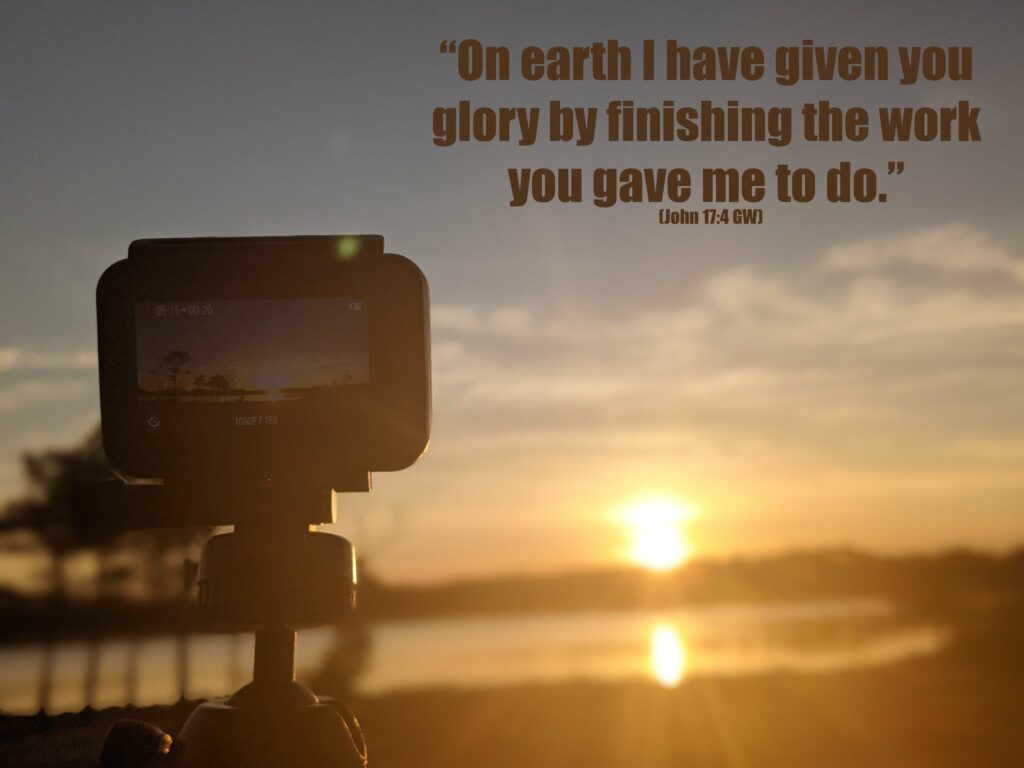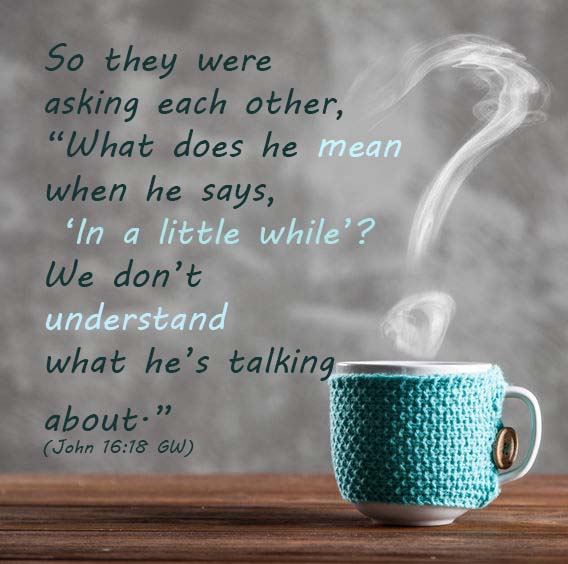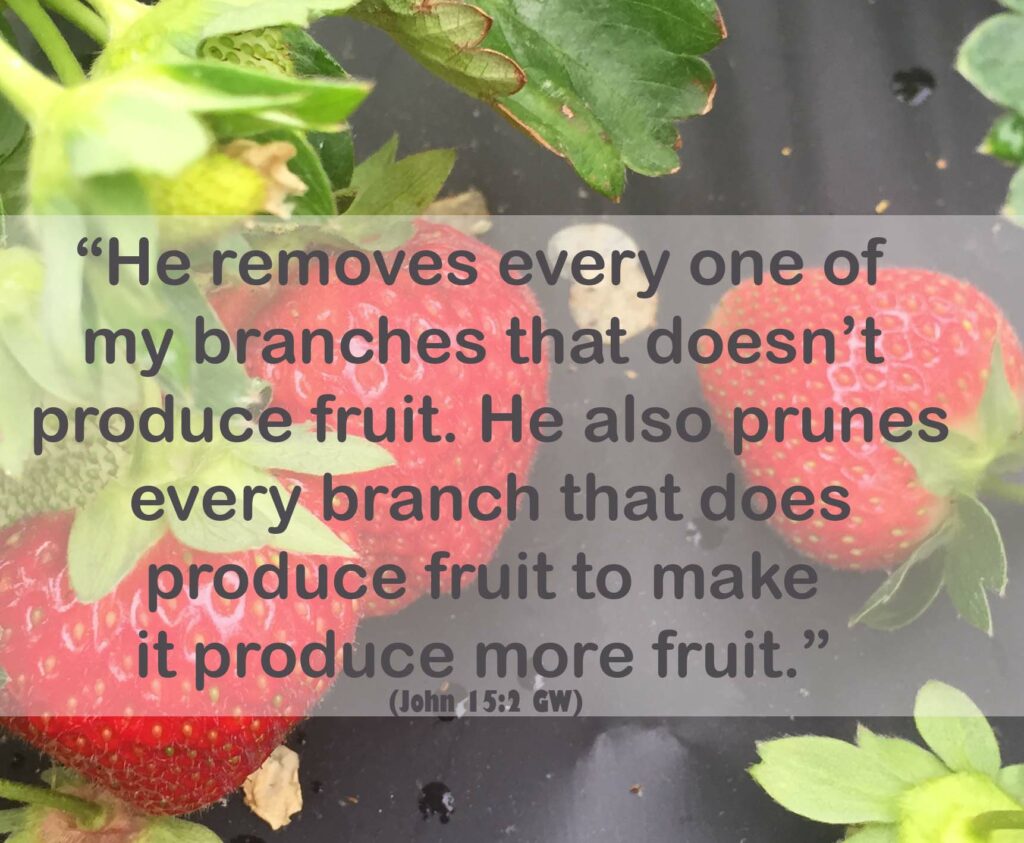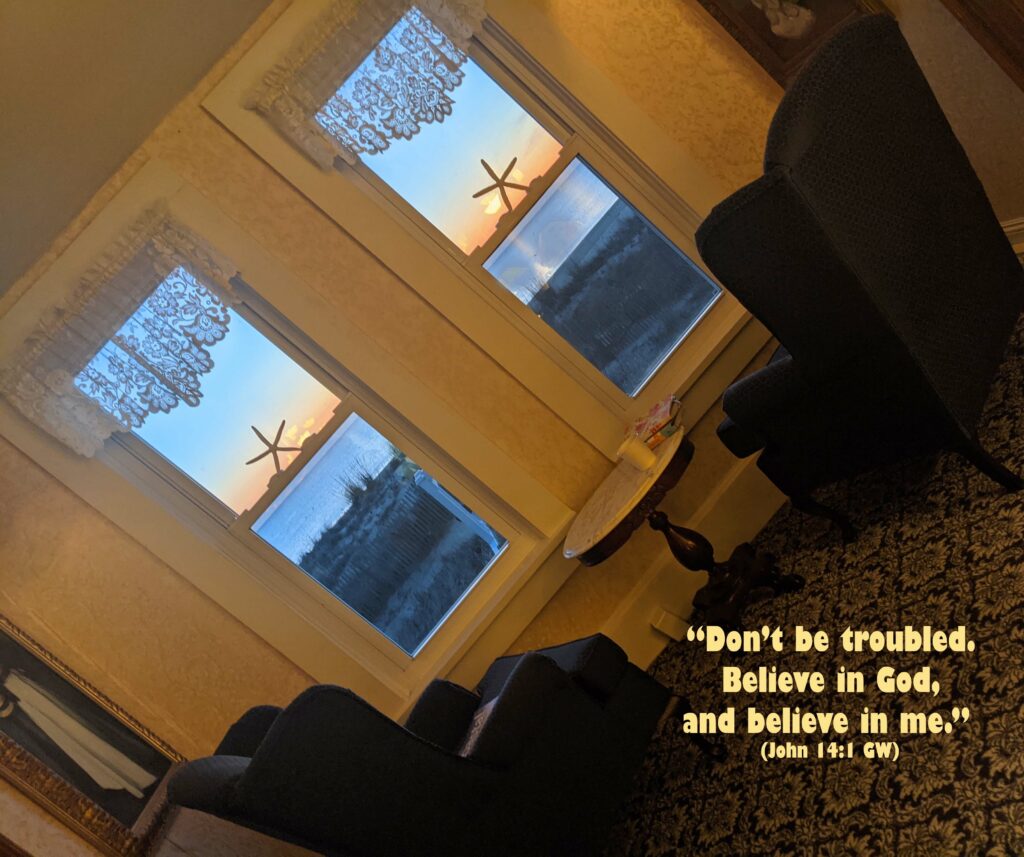2 minute read.
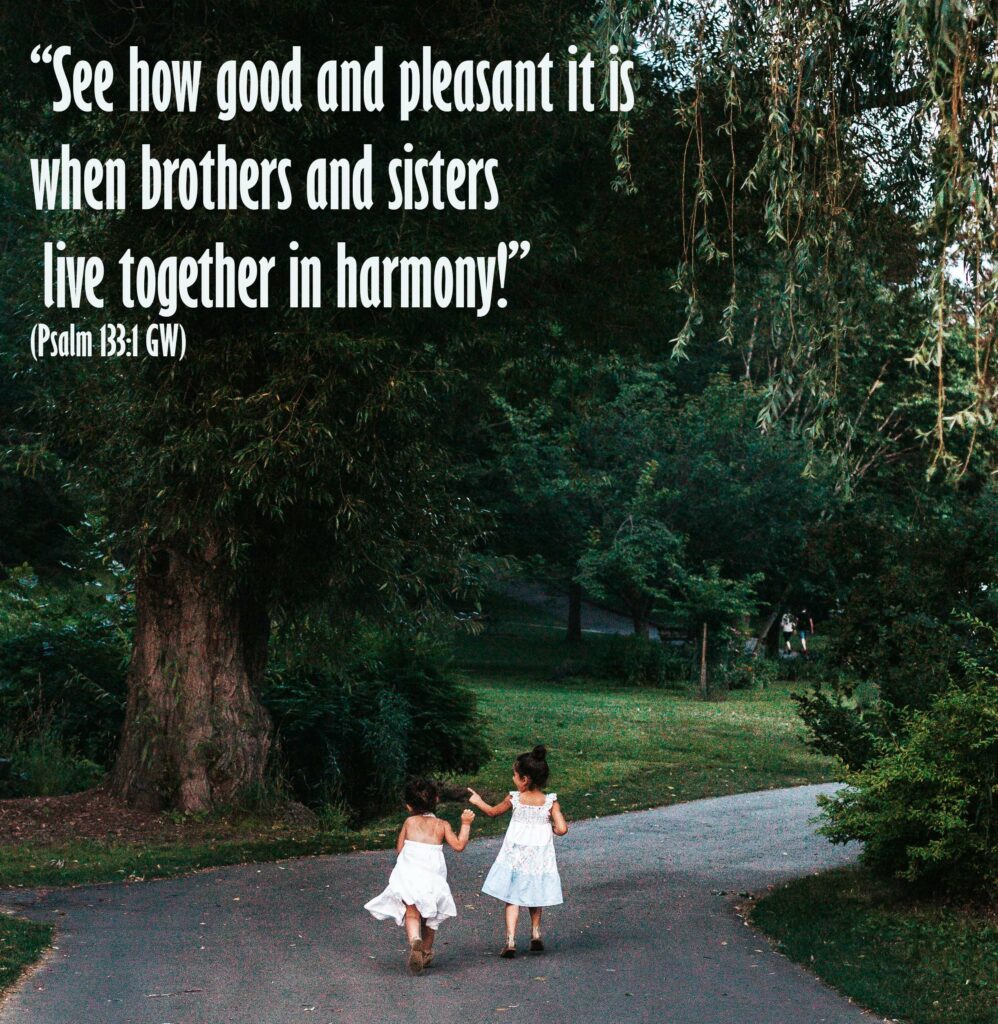
Daily Reading: Deuteronomy 3 GW; Psalms 133 GW; John 20 GW
Harmonious life, pleasant life.
Creating harmony in your relationships is up to you. Learning how to navigate healthy relationships takes time and effort. Following Jesus helps in the quest for unity with others. God’s recipe for living peacefully with others includes these ingredients:
- Pray for one another (James 5:16 GW)
- Love one another as I have loved you (John 15:12 GW)
- Serve one another in love (Galatians 5:13 GW)
- Esteem others higher than yourself (Phil. 2:3 GW)
- Husbands love your wife like Christ loved the church (Ephesians 5:25 GW)
- Wives respect your husband (quickly done if he loves you like Christ) (Ephesians 5:33)
- Do unto others as you would have them do unto you (Matthew 7:12 GW)
All of these ingredients have one thing in common, others before self. In each of these instances, God asks us to stop thinking about ourselves; instead, think of those around us. Following Christ helps us find the proper focus.
Look at Jesus
Living a pleasant life has nothing to do with creature comforts. Co-habitating peacefully with the people in your life brings joy. We interact with people all day long. From sun-up to sun-down, our relationships with family, friends, and co-workers impact our day. If a relationship is in turmoil, life isn’t pleasant. Where we place our focus is critical:
“If you look at the world, you’ll be distressed. If you look within, you’ll be depressed. But if you look at Christ, you’ll be at rest.” Rick Warren
Jesus brings rest to our weary souls. Through Him, we live in harmony with our brothers and sisters. Follow His commands, find peace. Harmonious relationships have Christ at the center of them.
.

Praise You, God, for Your glorious ways. Forgive us for our lack of obedience. Help us today put into practice what You have commanded. Today, let us pray for one another, bringing You into our relationships. When we have an opportunity to serve someone, let us take it. As Christ put us before His needs, let us do the same with others. Let the golden rule lead our day as we do unto others as we would have done unto us. With You, Lord, we can find harmony in our relationships. IJNIP. Amen
Question for reflection
What relationship do you need to pray for today?



